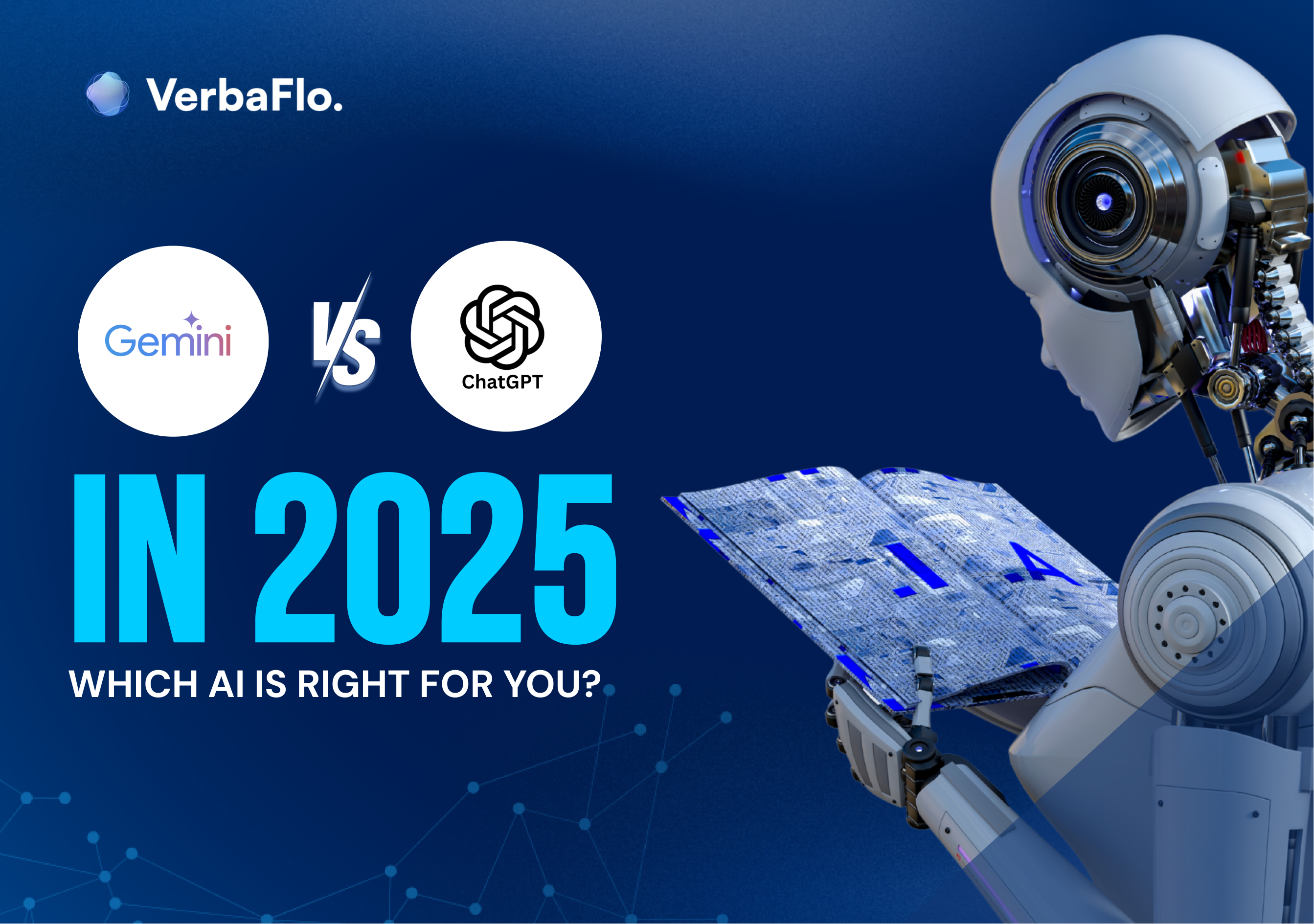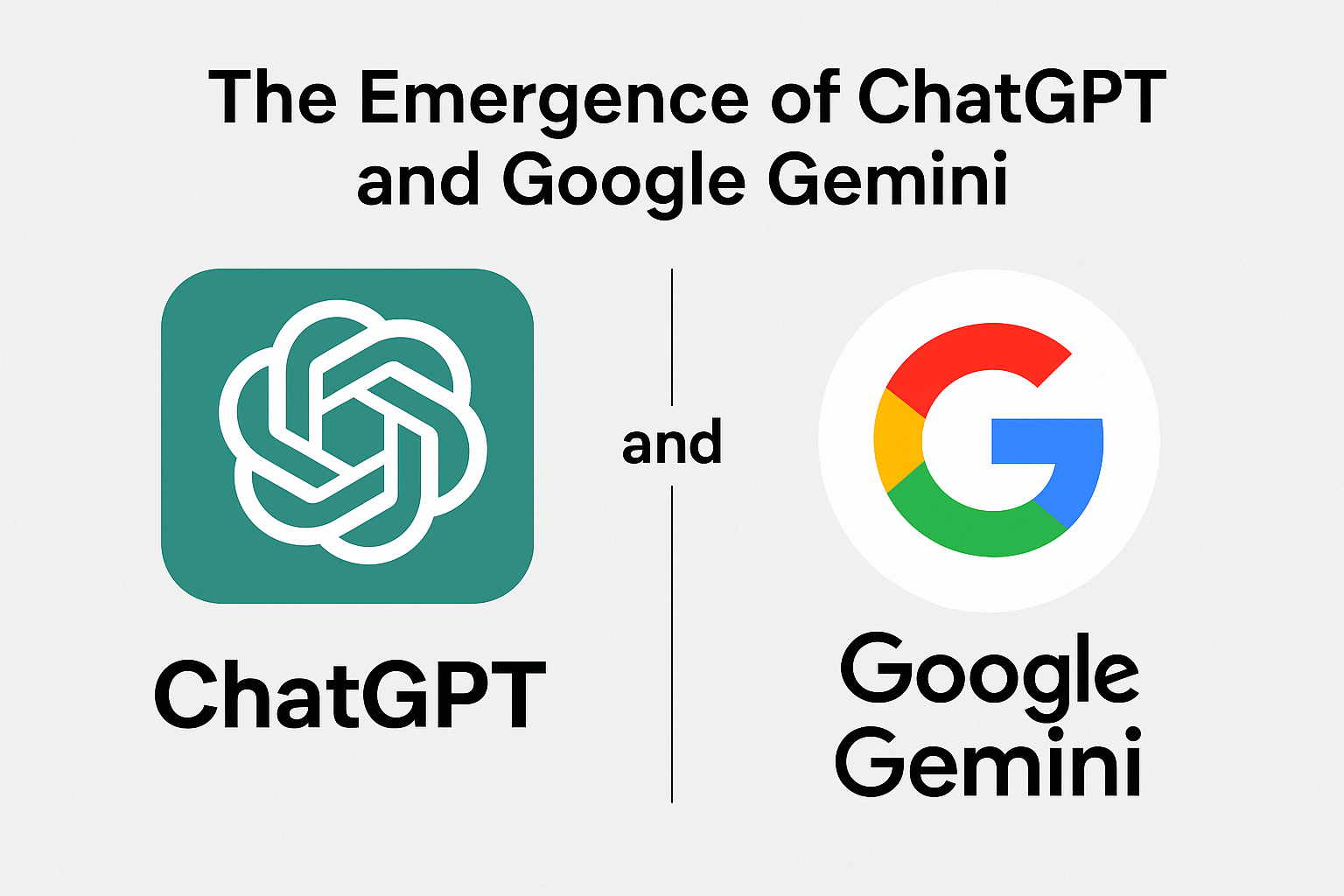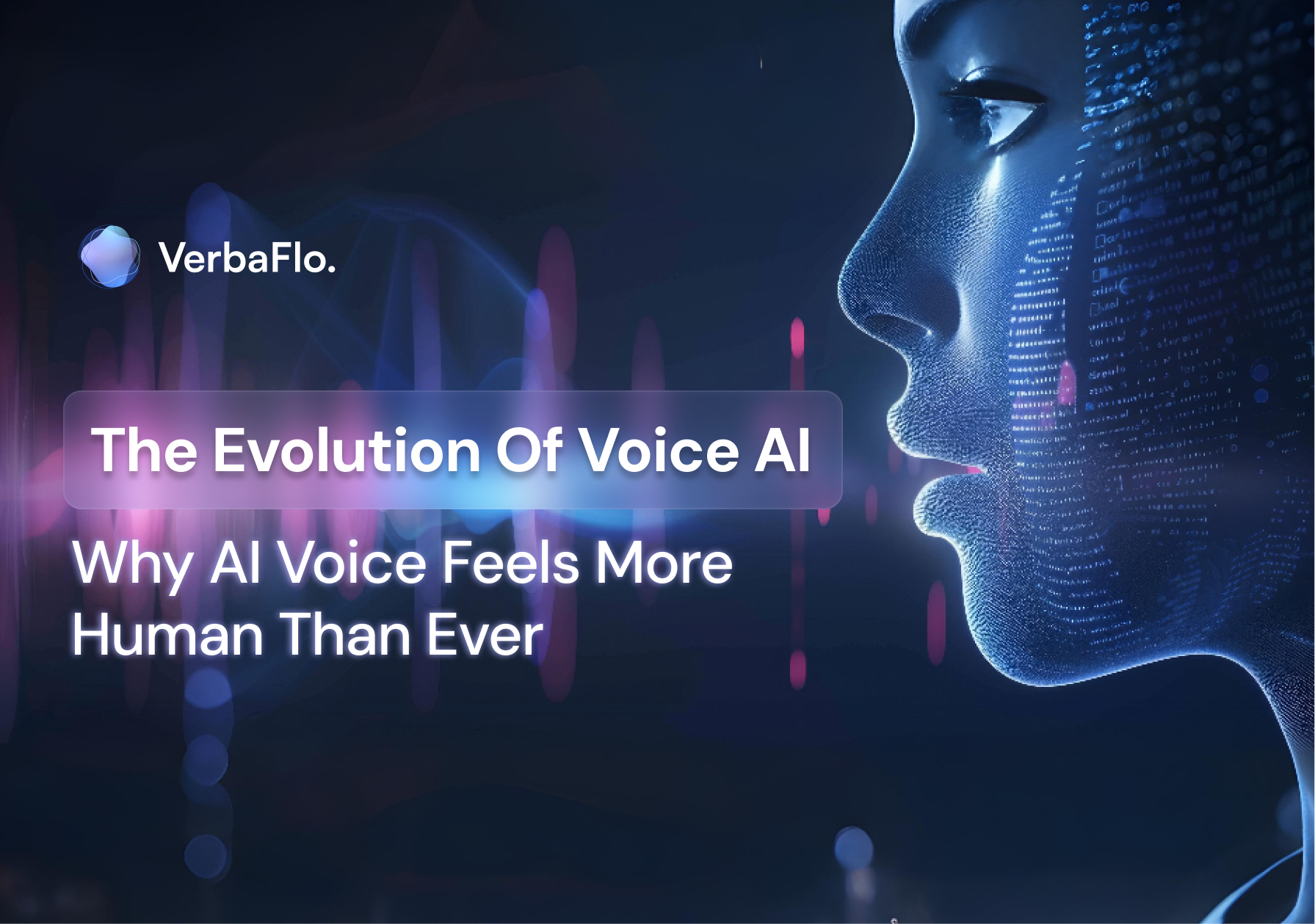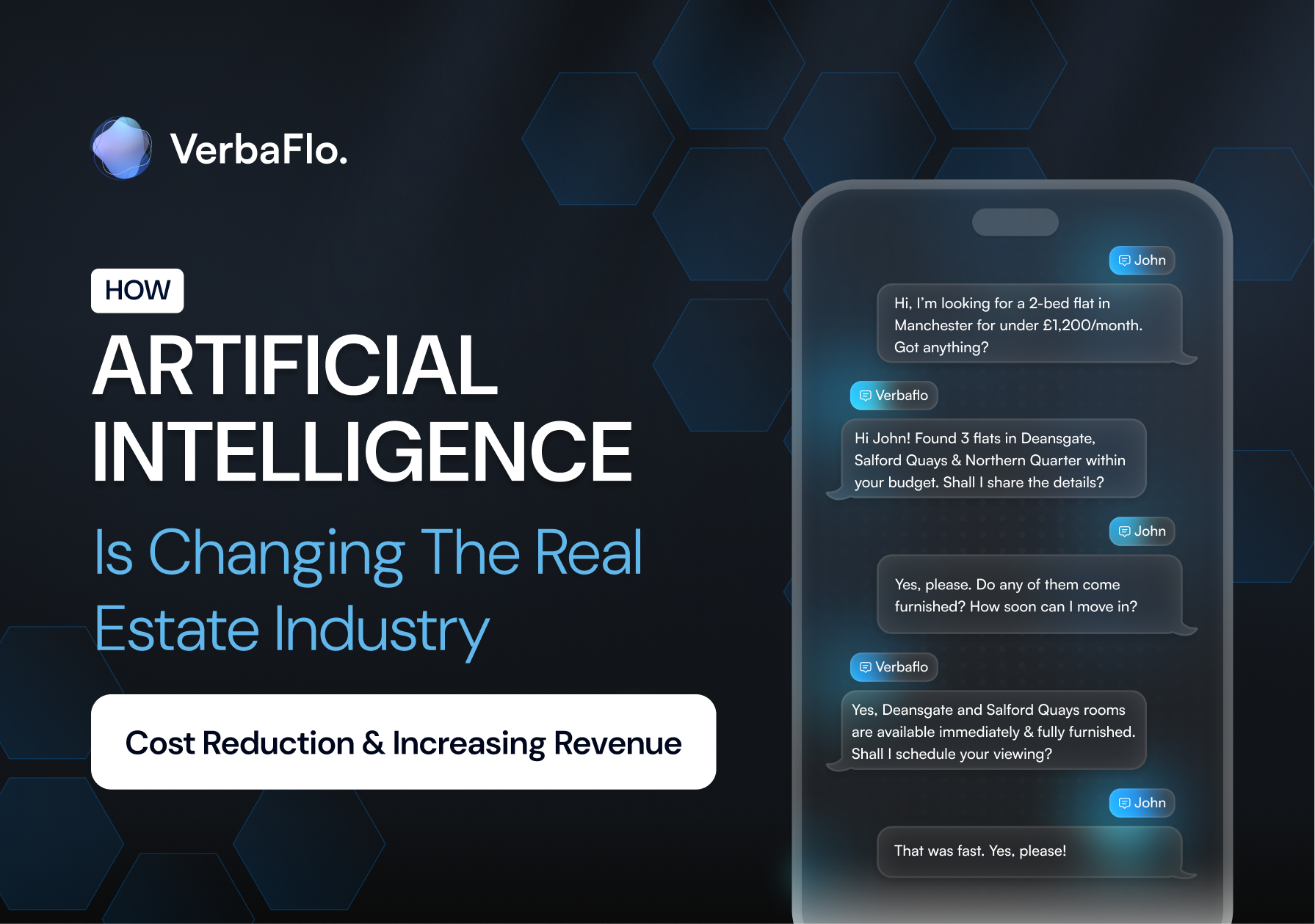ChatGPT vs Google Gemini in 2025: Which AI Model Is Right for You?
Verbaflo AI: ChatGPT vs Google Gemini — a 2025 comparison to find the best AI for coding, creativity, research, and productivity.


In this article, we’re comparing two of the most talked-about AI models in 2025: Google Gemini and ChatGPT. Each has made big strides lately, with ChatGPT evolving into versions like GPT‑4o and o3, and Gemini pushing forward with its 2.5 upgrade.
We’ll break down how they perform in the real world, such as speed, pricing, problem-solving, handling multimedia content, developer support, and how easily they fit into your existing setup. If you're weighing options for tasks like writing code, sparking creative ideas, or analysing complex data, this side-by-side look will make the choice much easier.
The Emergence of ChatGPT and Google Gemini
ChatGPT, launched by OpenAI in late 2022, quickly became the fastest-growing consumer software application in history, reaching over 100 million users within two months of release. What began with GPT-3 quickly grew into GPT-4 and now GPT-4o (the "o" stands for "omni," by the way). Each version stepped up the game with sharper reasoning, the ability to handle not just text but images and voice, and way faster responses.

OpenAI didn’t stop there. They rolled out memory features, plugged in APIs, and even gave ChatGPT some decision-making power through an agentic system.
This tool actually gets things done. It can remember your preferences, understand your needs, and take actions for you. Notably, ChatGPT’s integration into Apple’s operating systems in 2024 further cemented its role as a foundational tool in digital life.
Google Gemini stepped in as Google's response to the future of multimodal AI. Built on the foundation of PaLM and backed by DeepMind’s research, the Gemini models, especially versions 1.5 and 2.5, were designed to handle multiple types of input right from the beginning, not added in later. It’s closely tied into Google’s ecosystem, which means it works naturally with tools like Google Search, Docs, and Workspace.
What makes Gemini stand out is how it stays grounded in real-world data through tools like NotebookLM and it's deep link to Google’s search index and fact-checking systems. Unlike many other models, Gemini can process visual and mathematical tasks in one flow, making it capable of generating diagrams, solving complex problems, or summarising research papers with layered understanding.
A Comparison Between Gemini and ChatGPT
Model Evolution & Versions
As the AI race heats up, understanding the evolution of both Google Gemini and ChatGPT gives a clear view of how each platform matured. Their model versions reflect technological improvements and also hint at how they’re built for different use cases, from real-time responses to advanced multimodal tasks. Below is a side-by-side comparison that tracks how these models have evolved over time.
|
Feature |
Google Gemini |
OpenAI ChatGPT |
|
|
Initial Launch Identity |
Bard (Launched early 2023) |
ChatGPT (based on GPT-3.5, late 2022) |
|
|
Foundational Model |
Built on PaLM 2, transitioned to Gemini 1.0 |
Built on GPT-3.5, now powered by GPT-4 |
|
|
First Major Upgrade |
Gemini 1.5 (mid-2023) – Introduced long context + better logic |
GPT-4 (March 2023) – Improved accuracy and reasoning |
|
|
Multimodal Capability |
Gemini 2.0 (Dec 2023) – Native multimodal training |
GPT-4o (May 2024) – Vision, audio, and text support natively |
|
|
Performance Variants |
Gemini 2.5 Pro & Flash (2024) – High-speed & efficient variants |
GPT-4 Turbo – Faster and cheaper version of GPT-4 |
|
|
User-Facing Products |
Gemini Advanced (within Google One) |
ChatGPT Plus (subscription model for advanced GPT access) |
|
|
Current Cutting-edge |
Gemini 2.5 Pro & Flash |
|
Architecture & Capabilities
Let’s look at how top AI models manage different types of inputs like text, images, audio, and video. It also explains how much information they can handle at once, known as context length. These features shape how well the model understands, responds, and performs in real-world tasks.
Multimodality
- Gemini handles text, images, audio, video, and code natively; inputs can be interleaved freely.
- ChatGPT-4V supports text + vision (images) but does not process audio or video.
Context Length
- Gemini supports up to 1 million tokens (with 2 million coming soon), enabling analysis of hour-long videos or massive documents.
- ChatGPT‑4V top-tier supports around 128 k tokens, insufficient for truly long-context tasks.
Reasoning & Benchmarks
- Gemini 2.5 Pro leads on GPQA (84 %), AIME (≈89–92 %), MMMU (81.7 %), and especially “Humanity’s Last Exam” (18.8 %, compared to ~20.3 % by OpenAI o3, and lower for others)
- ChatGPT‑4V (GPT‑4 series) scores strong on MMLU (~88 %), but lacks multimodal benchmarks and long-context depth; it caps at 128 k tokens, limiting performance on long-context reasoning.
Summary: Gemini is clearly ahead in multimodal scope and context length, and while both reason well, Gemini takes the lead on complex, benchmark challenges.
Performance Comparison
Speed & Responsiveness
- ChatGPT is quick and fluid in most use cases, especially with GPT-4o. It responds well in long-form conversations and handles follow-up queries smoothly. The interaction feels natural, especially when context needs to be retained over multiple prompts.
- Gemini, particularly the Flash model, is optimised for speed. It delivers answers with near-instant response times, making it ideal for lightweight tasks or quick lookups. However, in more complex interactions, the snappiness sometimes comes at the cost of depth.
Technical Accuracy & Reasoning
- When it comes to getting the facts right, who's more trustworthy? ChatGPT performs consistently across diverse topics, offering solid logic with a touch of human-like reasoning. It’s particularly strong in open-ended queries that need both accuracy and nuance.
- Gemini, however, leads in structured benchmarks. It handles well-defined problems, data-heavy reasoning, and factual queries with precision. But in more creative or abstract scenarios, it can sometimes sound rigid or overly literal.
Coding Capabilities
- Need help writing or debugging code? ChatGPT thinks with you. It’s effective for developers who need step-by-step explanations, troubleshooting help, or context-aware suggestions. It handles iterative coding tasks with strong agentic behaviour.
- Gemini, on the other hand, thrives in handling large codebases. It’s great at parsing through complex repositories, summarising functions, and spotting logical errors across multiple files. Its ability to handle scale is a major plus for heavy engineering workflows.
Summary: If you're after raw speed and structured precision, Gemini makes a strong case. But for deeper reasoning, real-world coding help, and fluid interaction, ChatGPT still takes the lead.
Use-Case Comparison
When comparing AI tools like ChatGPT and Gemini, it's not just about how fast or smart they are; it’s about what they do best. This section dives into real-world applications where each model shines. From crafting content to crunching data, we’re looking at how well each AI handles specific tasks that matter to users.
Creative Writing, Content Generation, Human-Like Conversation
Need a blog post written in a warm, engaging tone? Or maybe a fictional story that flows like a novel? That’s where ChatGPT comes to play. It’s trained with a strong focus on tone, flow, and emotional intelligence, making it ideal for storytelling, human-like conversations, and natural writing.
Many content creators turn to ChatGPT because it can adopt different voices, mimic casual or formal tones, and structure long pieces without sounding robotic. Whether you're building dialogue for a script or writing copy for a website, ChatGPT often delivers more polished and relatable results.
Technical Tasks, Research, Large-Context Analysis, Multimodal Uses
When it comes to crunching numbers, understanding research papers, or handling multi-step reasoning across a large chunk of context, Gemini usually pulls ahead. Built by Google with deep integration into its vast search and data ecosystem, Gemini performs well in tasks that require fact-finding, summarising long documents, or interpreting multiple data types.
It also handles multimodal input, like combining text, image, and voice, more naturally. So, for research-heavy projects, data interpretation, or complex technical queries, Gemini tends to be the go-to choice.
Summary: In this case, both models win but in different arenas. If you're focused on natural, creative communication, ChatGPT is the better choice. But if you need analytical depth and diverse input handling, Gemini takes the lead. It all comes down to what your use case demands.
Ecosystem & Integration
When we talk about ecosystem and integration, we’re looking at how well these AI models fit into existing tools, platforms, and workflows. It’s not just about standalone performance; it’s about how these models amplify productivity within an ecosystem.
- Do they plug smoothly into your workday?
- Can they enhance tools you already use, or do they demand a shift in how you operate?
ChatGPT: Expanding Through OpenAI and Microsoft
With plugins and GPTs (customised mini-apps), users can expand ChatGPT’s capabilities for tasks like booking travel, generating charts, or coding assistance. Microsoft has embedded ChatGPT into its Copilot experiences across Word, Excel, Teams, and more, transforming how professionals write, analyse, and communicate.
On top of that, ChatGPT also integrates with Azure’s OpenAI Service, offering enterprise-grade security, custom model deployment, and fine-tuning. While it may not be baked into a mobile OS like Gemini is with Android, its integrations in business tools and cloud platforms are robust and evolving fast.
Gemini: Deeply Rooted in Google’s Ecosystem
Gemini is designed to work where billions of people already are, within Google’s ecosystem. It’s embedded into Google Search, offering AI-powered overviews and summaries directly in your results. In Google Workspace (Docs, Sheets, Gmail), Gemini acts as a smart assistant that helps draft emails, summarise documents, and generate data insights in real-time. It’s also powering features in Android, giving users voice and visual assistance natively across their devices.
Beyond consumer tools, Gemini is available in Google Studio and Vertex AI, empowering developers and enterprises to build custom AI applications, fine-tune models, and scale them efficiently within Google Cloud’s infrastructure. This native-level integration makes Gemini a natural choice for users deeply tied into Google’s services.
Pricing & Access
|
Feature |
ChatGPT Plus [GPT – 4o] |
Gemini Advanced (Gemini 1.5 Pro) |
|
Monthly Price |
$20/month |
$19.99/month |
|
Model Access |
GPT-4o |
Gemini 1.5 Pro |
|
Included In |
ChatGPT Plus subscription |
Google One AI Premium subscription |
|
Free Version Available? |
Yes (GPT-3.5) |
Yes (Base Gemini version) |
|
Key Features |
- Access to GPT-4o - Priority during peak times - Faster responses - Text, voice, image, and file support |
- Up to 1M token context window - Workspace integration (Docs, Gmail, Sheets) - Early access to experimental tools |
|
Best For |
Creators, analysts, professionals needing consistent performance |
Developers, researchers, and users within the Google ecosystem |
Summary: If you’re looking for versatility and multimodal interaction, ChatGPT Plus might offer a more intuitive experience. But if you're embedded in the Google ecosystem and need deeper integrations and longer memory, Gemini Advanced could be the smarter pick.
Speed & UX
When choosing an AI tool, speed and user experience (UX) are not just surface-level perks. They directly affect productivity and satisfaction. A fast response time keeps your workflow smooth, while intuitive UX design reduces friction and makes advanced tools feel accessible. Whether you’re brainstorming content or analysing data, how quickly and easily the platform responds shapes your overall experience. So, how do ChatGPT and Gemini stack up?
ChatGPT: Speed & UX
Speed (GPT-4o)
- Near real-time output, even for complex tasks
- Occasional peak-hour delays
- Optimised for writing, coding, brainstorming
UX Design
- Clean, minimal interface
- Easy model switch (GPT-3.5 & GPT-4o)
- Access to tools like file upload, image understanding, browsing
- Linear and distraction-free experience
Gemini: Speed & UX
Speed
- Varies by version and platform
- Fast in Google Workspace (Docs, Gmail)
- Slower in standalone/mobile apps, especially with heavy media prompts
- Strong multimodal support (text, image, code)
UX Design
- Familiar Google-style interface
- Smooth experience in Gmail/Docs with inline and panel suggestions
- Voice prompts and visual inputs supported
- Standalone app UI can feel disjointed and less fluid
Benchmarks Summary Table
Category
ChatGPT (GPT-4 / 4.5)
Google Gemini (v2.5 Pro/Flash)
Reasoning
Strong chain-of-thought, excels in logic, structure, exam-style reasoning
Top-tier on benchmarks like MMLU, LMArena; uses “thinking mode” for stepwise reasoning
Coding
Excellent debugging, clear teaching tool; educational analogies
Efficient code fixes, rapid query/data handling; strong for technical cleanup
Multimodality
Text, image, audio via integrations (DALL·E, GPT-4V)
Native handling of text, image, audio, video, code in long chains
Creativity
High storytelling flair, emotional nuance; excels in analogies, tone
Crisp, punchy energy; strong for visual/content hooks and trend-style outputs
Speed
Fast, but may slow on complex tasks; variable during peak
Optimised with TPU; responds ~15% faster, especially in real time
Context Window
Up to 128K tokens (≈ 300 pages) via GPT-4.5 Turbo
Industry-leading: up to 1 million tokens now, 2 million coming soon
Future Outlook & Trends
Upcoming Upgrades: Gemini 2.5 vs ChatGPT O-series & GPT-5
Gemini 2.5 Pro & Flash launched with:
- Enhanced reasoning and multimodal capabilities
- Native audio support
- 1M-token context window
- Integration into Search Labs, IDEs, and Gemini CLI
OpenAI updates:
- Released o3 (deep reasoning) and o4-mini
- GPT-5 expected by summer 2025
- Promises unified intelligence with voice, canvas, multimodal upgrades, and smarter logic
Big question: Will Google’s ecosystem win, or will OpenAI’s intelligence upgrades take the lead?
Ecosystem Shifts & Regulatory Factors
Google’s strategy:
- Embedding Gemini across Search, Gmail, Android, Workspace, and dev tools
- Creates a powerful, unified AI layer
- Faces possible antitrust scrutiny over bundling
OpenAI’s approach:
- Modular rollout via subscription tiers
- Transparent integration of GPT-5, o3, and o4-mini
- Could appeal to regulators cautious of monopolistic platforms
Conclusion: Which is Best in 2025?
Choosing between ChatGPT and Google Gemini in 2025 isn’t about picking a “better” AI. It’s about picking the right one for your workflow.
If your days revolve around writing, storytelling, chatting with clarity, or working across creative domains, ChatGPT is still the go-to tool. It speaks like a human, thinks with structure, and adapts to different tones with ease. Its memory feature and seamless experience across Microsoft tools make it a productivity powerhouse for content creators, marketers, and solopreneurs.
But if your tasks lean toward technical depth, research analysis, data-heavy documents, or multimodal projects, Google Gemini is the sharper scalpel. Its unmatched context window, video understanding, and deep integration into Google Workspace make it ideal for developers, analysts, and enterprise users. And when you need to process a spreadsheet, summarise a paper, or reason across visuals and code, Gemini's got the edge.
In short?
- Need nuance, voice, and conversational depth? Go ChatGPT.
- Need scale, speed, and multimodal precision? Go Gemini.
Ready to hear it for yourself?
Get a personalized demo to learn how VerbaFlo can help you drive measurable business value.
You may also like
Ready to hear it for yourself?
Get a personalized demo to learn how VerbaFlo can help you drive measurable business value.


.png)

